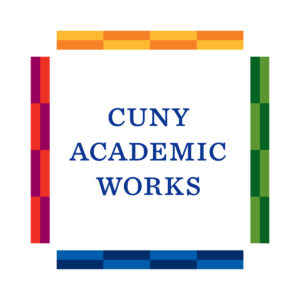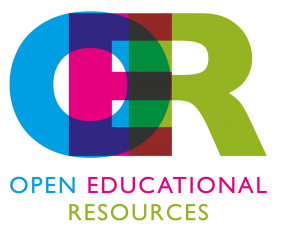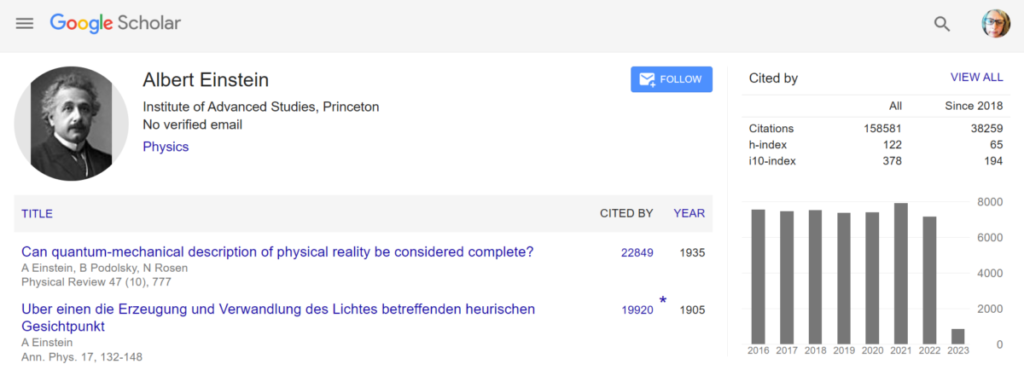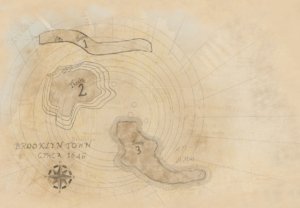 The NYC Landmarks Preservation Commission has announced “a new interactive audio tour exploring Brooklyn’s significant role in the abolitionist movement and the Underground Railroad,” entitled “More Than a Brook: Brooklyn Abolitionist Heritage Walk.” The walk is 4.5-miles and has 19 stops in Brooklyn Heights, Downtown Brooklyn, and Fort Greene. If you want to listen to the tour without the additional visual and interactive elements, the audio files are on Sound Cloud.
The NYC Landmarks Preservation Commission has announced “a new interactive audio tour exploring Brooklyn’s significant role in the abolitionist movement and the Underground Railroad,” entitled “More Than a Brook: Brooklyn Abolitionist Heritage Walk.” The walk is 4.5-miles and has 19 stops in Brooklyn Heights, Downtown Brooklyn, and Fort Greene. If you want to listen to the tour without the additional visual and interactive elements, the audio files are on Sound Cloud.
Faculty Workshop, 5/10: Open Publishing
Open Publishing
Friday May 10, 12:00-1:00 PM
Faculty Commons, registration tba
There are many paths to open! Learn about resources from CUNY and City Tech library that facilitate authoring preprints, open access monographs and journals, open textbooks, OER, and more. Open publishing makes your research and teaching materials freely available which benefits the broader community and increases your visibility as a scholar and educator.
Bachata Sounds Good! The History of Dominican Music
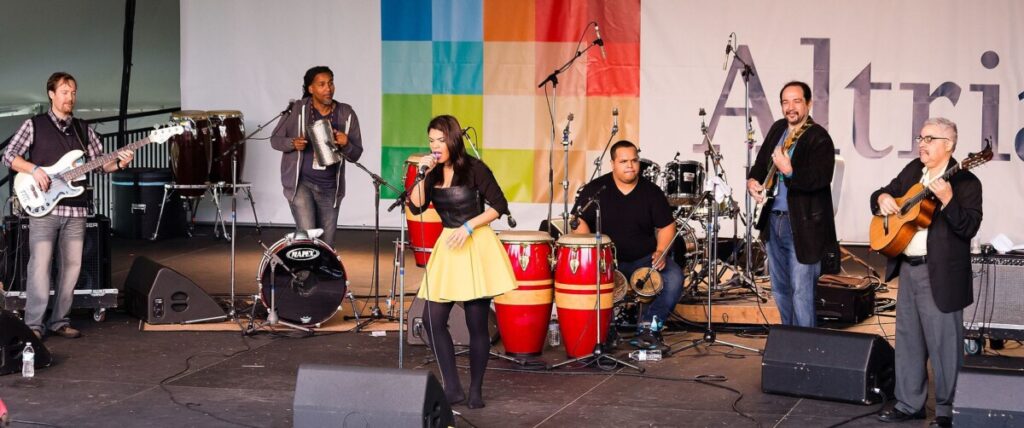
Bachata is a famous style of Latin music from the Dominican Republic. CUNY’s Dominican Studies Institute at City College created an exciting, interactive website devoted to the history of Dominican Music in the US.
Students: are you interested in Dominican culture in general or want to do some related research? The Institute created a library guide.
This post is part of the library’s #CityTechSoundsGood/#CityTechSuenaBien grant. We have some exciting musical news related to the grant to share soon!
Faculty Workshop, 5/2: Author Identifier (ORCID) for Publishing and Grantsmanship
 Author Identifier (ORCID) for Publishing and Grantsmanship
Author Identifier (ORCID) for Publishing and Grantsmanship
Thursday May 2, 3:00-4:00 PM
ORCID IDs are author identifiers. They are especially helpful to authors with names that are more common but they have other benefits including speedier registration in systems for submitting articles, reviewing, and grant applications. Grantees who use their ORCID when applying for a grant help to assure that funders connect your funding program to your scholarship. ORCID also helps potential funders to efficiently review your publications.
Registration
Faculty Workshop, April 18, Get Organized! Zotero Basics
Get Organized! Zotero Basics
April 18, 3:30-4:30 PM
Attendees will learn the capabilities of this powerful, free open-source reference management software program. The session covers the functionalities of the Zotero client, adding the Zotero plugin to your browser, and importing citations to generate a bibliography. To maximize our workshop time, please download Zotero from https://www.zotero.org and create your username and password in the Zotero client software by going to EDIT > PREFERENCES > >SYNC
Registration
Latin Music and Puerto Rican Migration To New York City
Many people migrated from Puerto Rico and elsewhere in Latin America to New York City in the late 19th century and 20th century. Once settled in New York City, these Latin American migrants profoundly influenced American music and culture, creating and flavoring music ranging from Big Band to Afro-Cuban jazz to hip hop to salsa. Although the resource linked above from TEACHROCK is geared toward instructors, students interested in this topic will find many links to sound clips, videos, podcasts, images, and other sources.
Another website to check out is New York Latin Culture Magazine’s Latin Music in New York City From the Barrio to Lincoln Center (newyorklatinculture.com). This magazine has information about live Latin music, so check it out!
Podcasting workshop 4/8 (7-7:45 PM)

Learn how to podcast at City Tech library! We’re running two workshops.
When: April 15, 7-7:45 PM
Where: Library Multimedia Screening and Meeting Space, 4th Floor, Library Building
RSVP
Are you interested in podcasting? Do you have a story you want to tell? Come to the workshop to learn the basics of podcasting, from recording to publishing using the library’s new podcasting kits that you can borrow.
This workshop was made in part through a grant from the American Libraries Association #CityTechSoundsGood | #CityTechSuenaBien project.
For more information, contact Prof. Junior Tidal.
A Nimble Arc : James Van der Zee and Photography
 Our former colleague, Emilie Boone, African American Studies, currently, New York University, was nominated for an award from the National Book Critics Circle for best first book. Her book on twentieth-century Harlem photographer James Van der Zee “considers James Van Der Zee’s photographic work over the course of the twentieth century, showing how it foregrounded aspects of Black daily life in the United States and the larger African Diaspora.” You can read this book online and a hard copy is available for a two-hour loan.
Our former colleague, Emilie Boone, African American Studies, currently, New York University, was nominated for an award from the National Book Critics Circle for best first book. Her book on twentieth-century Harlem photographer James Van der Zee “considers James Van Der Zee’s photographic work over the course of the twentieth century, showing how it foregrounded aspects of Black daily life in the United States and the larger African Diaspora.” You can read this book online and a hard copy is available for a two-hour loan.
Faculty Workshop, 3/28: Get Evidence! Scholarly Metrics for Your PARSE and CV
Get Evidence! Scholarly Metrics for Your PARSE and CV
March 28, 11:00 AM-12:00 PM
Covers Google Scholar Profile for citations and Google Scholar for journal rankings, Scimago for journal rankings, Altmetric Attention Scores for social media, and download reports from Academic Works (and other repositories). We’ll also touch on finding individual journal acceptance rates as well as Journal Impact Factors. The workshop will briefly address books and book chapters as well as other ways we can demonstrate the value and impact of our work.
Registration
Event, Calligraphy and Hand lettering by Paul Shaw, 3/21 Club Hour
 Students and faculty–are you curious about calligraphy and hand lettering? This in-person event sponsored by the City Tech Communication Design department is a unique experience for anyone who likes graphics or type—or just wants to check out something new.
Students and faculty–are you curious about calligraphy and hand lettering? This in-person event sponsored by the City Tech Communication Design department is a unique experience for anyone who likes graphics or type—or just wants to check out something new.
